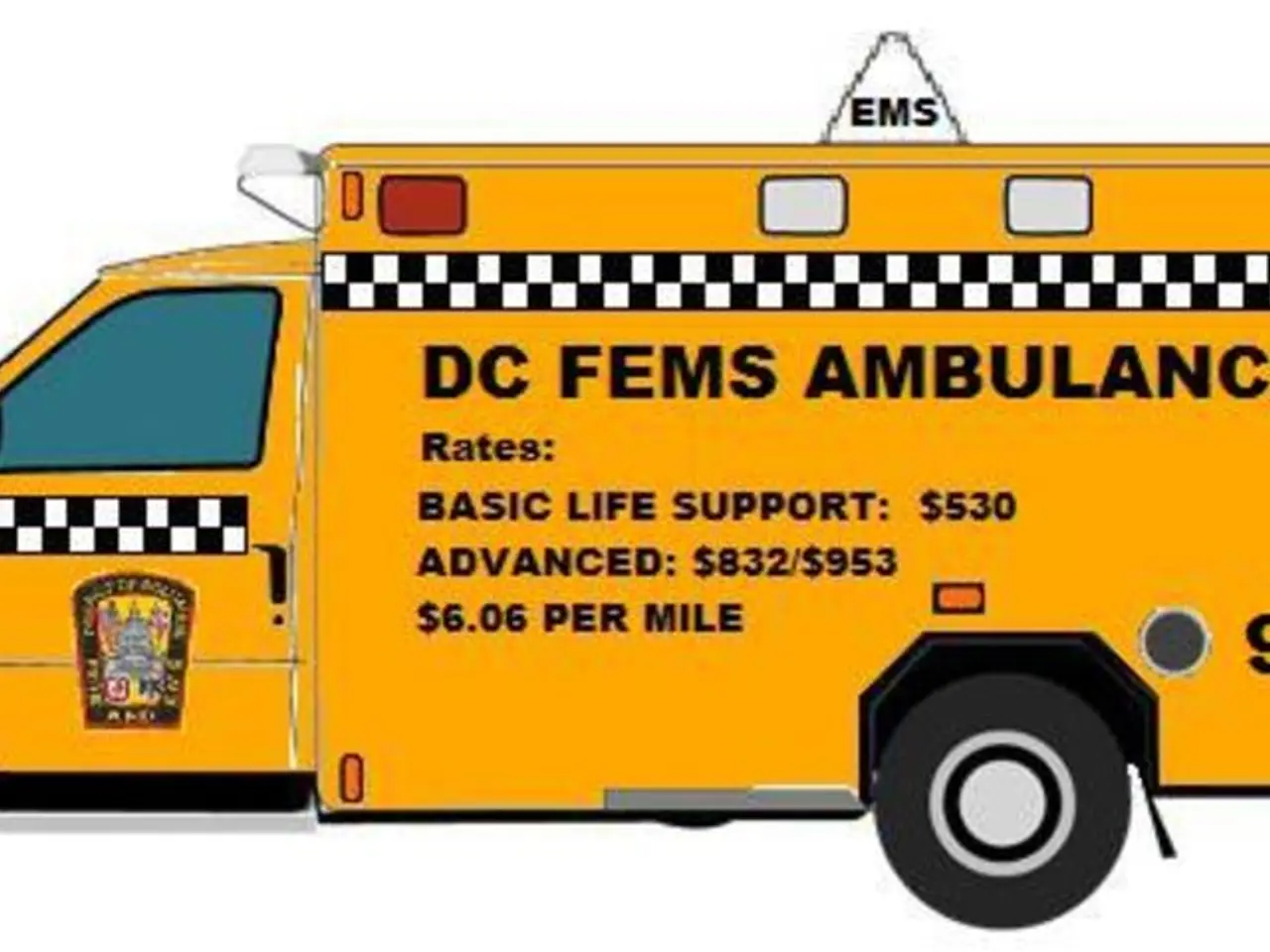Hospital delay: Patient endured over five-hour duration of transfer from Covilhã to Coimbra
In a recent incident involving a 49-year-old patient with craniofacial trauma in Covilhã, the operational status of the emergency medical helicopter service contracted by Gulf Med and the Portuguese state has come under scrutiny. The scooter accident, which occurred in the late afternoon, set off a five-hour journey that involved six different medical teams and relied solely on the Portuguese Air Force (FAP) for helicopter services.
Under normal circumstances, the Gulf Med helicopter service would have been activated. However, it was not operational during this incident, leaving the FAP to operate four helicopters 24 hours a day as a temporary solution. Gulf Med, on the other hand, operates two helicopters, but only during daytime hours.
The helicopter used for the rescue operation was the EH101 Merlin from the Portuguese Air Force, which departed from the military base in Montijo. Before reaching the patient, the helicopter first stopped in Castelo Branco to pick up its own medical team. If the INEM helicopter from Viseu had been used, the patient's journey could have been completed in around 1.5 hours.
The hospitals in the area began contacting medical teams at 8:00 PM, and the patient was initially transported to Cernache do Bonjardim, in Coimbra. From there, the patient was transferred to the intensive care unit at the hospital in Coimbra at 8:00 AM and remains hospitalized in critical condition. The patient needs to be transferred to the neurosurgery service at the hospital in Coimbra.
Firefighters arrived at the scene within minutes, but their involvement in the transfer was required approximately two hours later. The limited availability of helicopters and medical teams during nighttime operations has raised concerns about transfer times and the number of medical teams involved in such rescues.
The current situation means that at night, only the Air Force helicopters are active, staffed with medical teams. This situation limits the number of available helicopters and crews for nighttime rescues, potentially leading to longer transfer times and fewer medical teams being deployed compared to daytime operations when Gulf Med helicopters also operate.
Until Gulf Med's helicopters are approved for 24-hour operation, nighttime air rescue relies exclusively on Air Force resources, impacting the speed and scale of medical response in incidents like the scooter accident in Covilhã. The table below illustrates the differences in helicopter availability and medical teams involved during daytime and nighttime operations.
| Time of Operation | Helicopter Availability | Impact on Transfer Time & Medical Teams | |-------------------|------------------------|-----------------------------------------| | Daytime | 4 Air Force + 2 Gulf Med helicopters | More helicopters and medical teams available; faster transfers and multiple teams can be involved | | Nighttime | 4 Air Force helicopters only | Limited helicopter availability; potential for longer transfer times and fewer medical teams |
The incident in Covilhã serves as a stark reminder of the importance of having adequate resources for nighttime air rescues. The Portuguese government and Gulf Med are working to address these issues and ensure that patients receive timely and effective medical care in emergencies.
In the scenario of a nighttime medical emergency, the Gulf Med helicopter service, which is typically involved in health-and-wellness operations, would not be operational, necessitating the reliance on the Portuguese Air Force (FAP) for aerial medical transport. This situation in Covilhã has highlighted the significance of science and medical-conditions-related resources during nighttime air rescues, as limited helicopter availability could potentially lead to longer transfer times and fewer medical teams being deployed compared to daytime operations.




